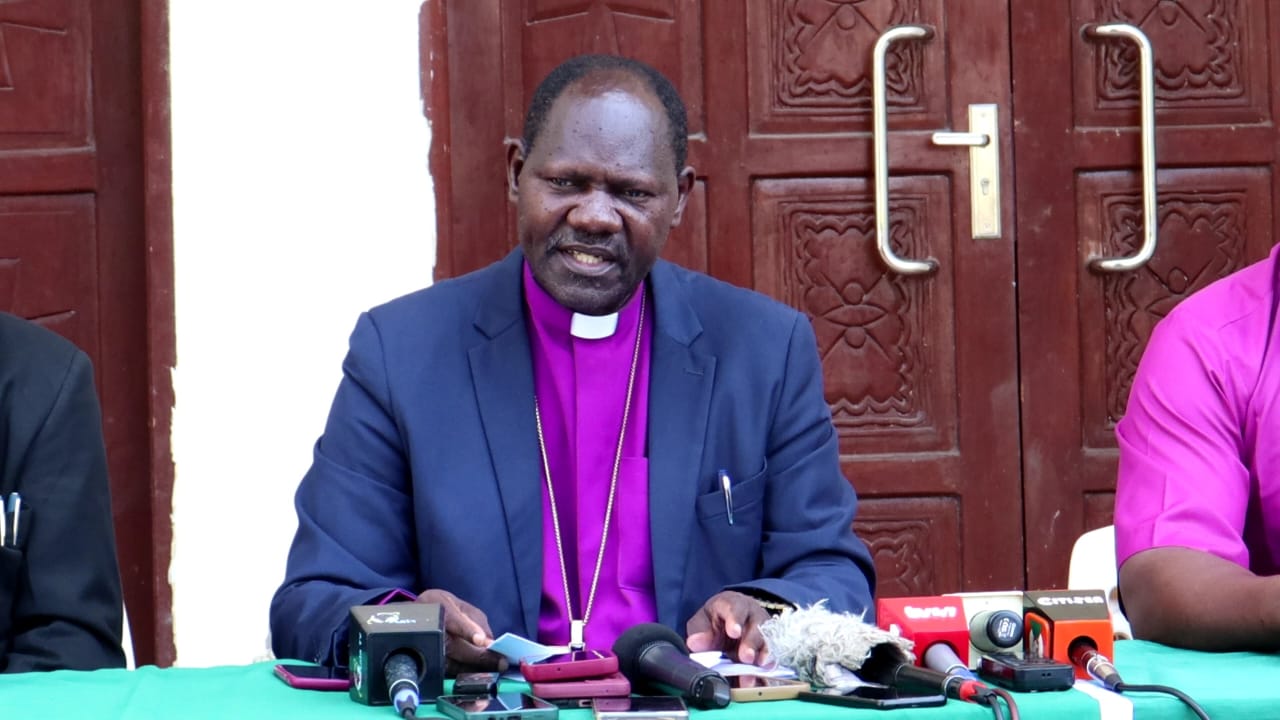

Church leaders from the Nyanza region have issued a scathing statement condemning the current state of governance in Kenya, highlighting concerns over political oppression, corruption, and neglect of critical sectors like education, health, and security.
Speaking in Kisumu, the clergy emphasized the urgent need for transformative leadership and accountability to address the plight of ordinary Kenyans.
While quoting Proverbs 29:2, the leaders noted, “When the righteous thrive, the people rejoice, but when the wicked rule, the people groan."They criticized the government’s apparent drift toward political totalitarianism, with diminishing opposition voices and unchecked presidential power.
In a statement, the church leaders decried the failing education system, pointing to unresolved issues in the Competency-Based Curriculum (CBC) and inadequate preparations for transitions from junior secondary to high school.
They called for immediate solutions to lecturers’ grievances, warning that poor policies would lead to unqualified graduates and national stagnation.
On Health, the clergy expressed disappointment in the mismanagement of the health sector, particularly the unresolved challenges of the National Health Insurance Fund (NHIF) and scepticism over the Social Health Authority (SHA).
They demanded free medication in public facilities and government investment in cancer treatment centres in all county referral hospitals.
Security concerns were also raised, with the leaders advocating for the devolution of security services to county governments. They condemned the rising cases of abductions, extrajudicial killings, and discrimination in intelligence operations, urging a shift in focus toward addressing real criminal elements instead of political dissenters.
They also accused the government of inaction on corruption and urged for transparency in prosecuting individuals implicated in mega scandals. They also criticised recent attacks on Catholic bishops for speaking out against corruption, urging respect for the church’s role as a moral watchdog.
The church leaders outlined several demands to the government, including a publication of individuals convicted or charged with corruption.
A report on state appointments under the “broad-based government, transparency on foreign travel expenditures and the status of constitutional offices like the IEBC. Revocation of the discriminatory university funding model and implementation of lecturers’ collective bargaining agreements.
The clergy also emphasized the need for a government sensitive to the burdens borne by ordinary Kenyans, particularly the impact of excessive taxation and poor service delivery.
“Kenyans deserve dignity, respect, and an alternative voice to check government excesses. Leaders must uphold transparency and accountability in their service to the people,” said Bishop David Kodia of Bondo.
Other signatories included Bishop John Mark Godia of Maseno West, Archbishop Patrick Ligawa of the Church of Christ in Africa, and Archbishop Winnie Owiti of the Voice of Salvation and Healing Church, Bishop Charles Onginjo Bishop of Maseno South, Dr Simon Onyango Bishop of Southern Nyanza, Betty Onyango Archbishop African Israel Nineve and Bishop Clement Otieno of Free Pentecostal Church of Kenya.
The statement concluded with a call for prayers for Kenya and a warning that civil disobedience might be necessary if the government fails to address the outlined concerns.










